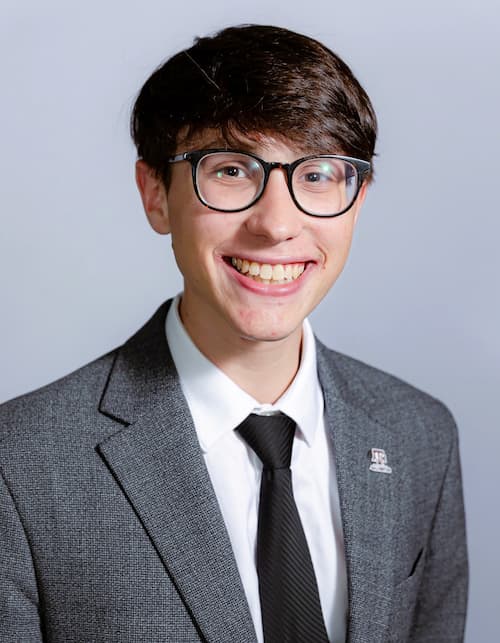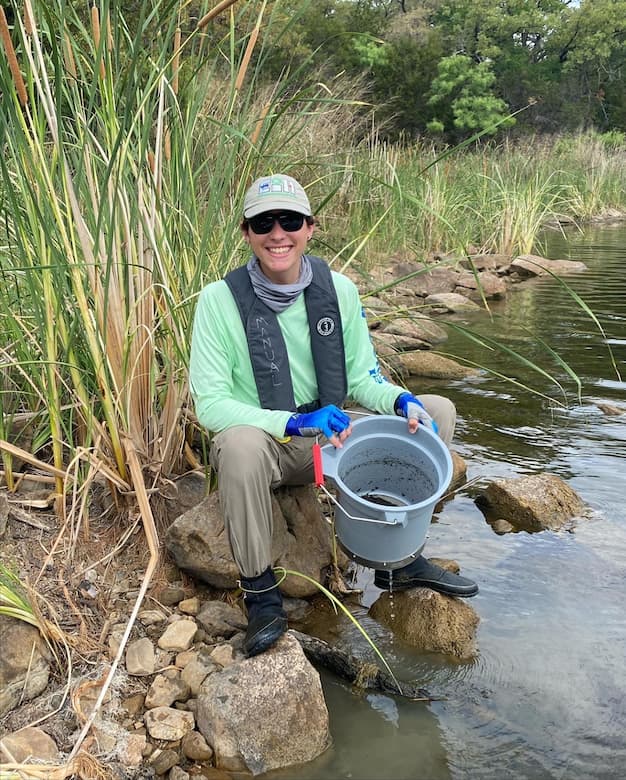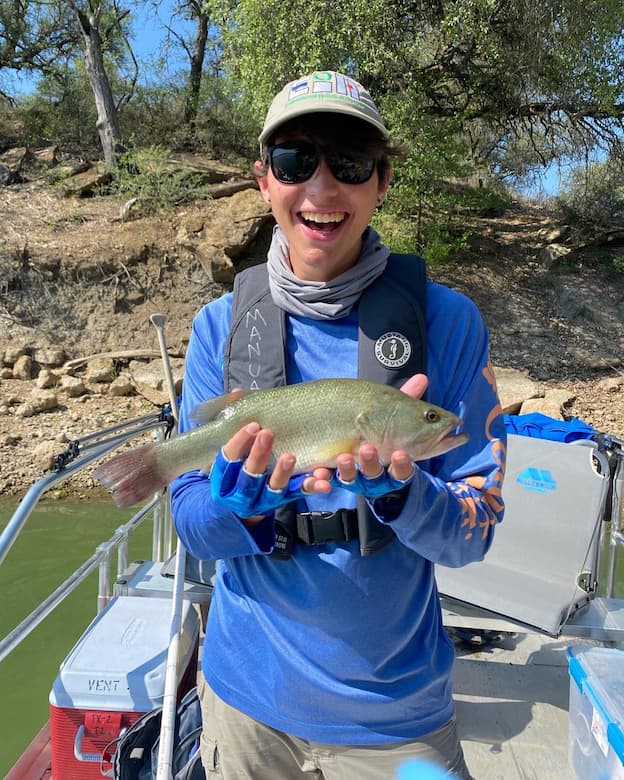Hollings Scholar Flourishes as Promising Researcher, Oceanographer
February 7, 2023
Tweet
By Taylor Bounds, Content Specialist
NOAA Ernest F. Hollings Undergraduate Scholarship recipient Chris Pryor ‘24, from Dallas, TX has big plans after graduation, and this prestigious award with four semesters of financial assistance will help him achieve all of them.
The scholarship, named after Senator Ernest “Fritz” Hollings of South Carolina, provides financial support and professional development. It was established upon the Senator’s retirement in 2005 to increase environmental literacy and support NOAA’s mission sciences. The scholarship supports over 120 undergraduate students each year.
Pryor is currently a junior focusing on his studies in Marine Sciences. He wants to continue in academia and pursue a PhD in chemical oceanography, researching how microscopic organisms have cascading effects on the globe. Pryor found a passion for higher education during his service as Student Body Vice President in the Student Government Association and hopes to eventually work in higher education administration. His involvement in student organizations helped him refine skills needed as an administrator – such as active listening, collaboration and a connection to the Galveston campus – skills he jokes that studying hard sciences has not taught him.

Several semesters ago, Pryor interned in the office of academic affairs, helping provide resources for LGBTQ, BIPOC, veterans, and disabled students. That internship led to his current position as an undergraduate researcher in the phytoplankton dynamics lab, where he has worked since the fall of 2021. Pryor’s first project was on the effect that per- and poly-fluoroalkyl substances (PFASs), also known as forever chemicals, have on phytoplankton on the Texas coast, and what consequence that interaction has on public health. With the completion of that project, he is currently working on his thesis: how phytoplankton and bacteria interact and exchange resources to survive.
In addition to the financial support, NOAA Hollings scholars have a 10-week paid internship at a national NOAA facility in the summer between their junior and senior years. Pryor will spend his summer at the NOAA Southwest Fisheries Science Center in San Diego, California, studying fish larvae assemblages in national marine sanctuaries and discovering how different management strategies and changes in the ecosystem off the coast of California has impacted local fish populations.
“Chris is a rising star, he has great potential to make an impact in ocean sciences!” said Dr. Antoinetta Quigg, Senior Associate Vice President for Research and Graduate Studies, Regents Professor in the Department of Marine Biology and principal investigator of the phytoplankton lab. “The internship at the NOAA Southwest Fisheries Science Center will provide him with a rich set of experiences and widen his network of scientists. I am excited he will have this opportunity.”

Pryor is most looking forward to the experience with federal agencies and working with people he would not have the opportunity to meet otherwise. “I am thrilled to have the ability to expand my portfolio with a unique and diverse experience in an intense lab environment,” he said. “I am ready and looking forward to the challenges ahead.”
If you are interested in applying for the NOAA Hollings Scholarship, Pryor says to go for it. “This scholarship is for anyone who loves the ocean. It’s an all-inclusive opportunity that provides financial and real-world development opportunities,” he said. “It’s not just for marine science students. There are different fields to choose from, like policy, technology or education, that can all benefit from learning from leading NOAA administrators.”
With a bright future ahead of him, he was recently nominated for the 2023 Barry Goldwater Scholarship and Excellence in Education Foundation competition, which is awarded to exceptional sophomore or junior undergraduates who intend to pursue research careers in mathematics, natural sciences, or engineering. With all of his successes in and out of the classroom, he looks forward to the completion of his thesis through the undergraduate research scholar program, but he said that most of all, for his senior year and beyond, he wants to spend time with his family, ensure a smooth transition in student government, and have a great summer internship.
###
Media contact:bounds@tamug.edu